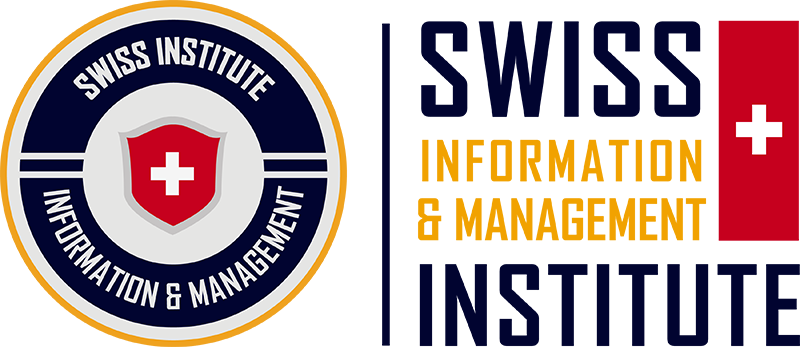What Is The Bologna Process And Why It Is Important In Higher Education?

As one of the leading countries in providing top-quality higher education, Switzerland is also participating in the process of global education integration. Although it is not a member of the European Union, Switzerland still participates and signs many agreements regarding education to create opportunities for all Swiss educational institutions to improve their teaching quality as well as to ensure that diplomas/certificates/degrees from Switzerland are recognized in terms of quality, and are identifiable and can be considered equivalent in all countries around the world.
The Bologna Process is one of the most important treaties formed by the European Higher Education Area (EHEA) based on the Lisbon Recognition Convention with the aim of ensuring the comparability, compatibility, and coherence in higher education in Europe, enabling qualifications in participating countries to be automatically recognized when working and studying in member countries.
What do countries participating in the Bologna process commit to?
In order for all countries who participate in the Bologna process can reap the benefits, all participating countries must commit to:
- Forming a three-cycle higher education system with the first cycle is the bachelor level, second is the master level, and the third is the doctorate level.
- Ensuring mutual recognition of degrees and learning processes when using diplomas and training results from one country to another for work and study.
- Establishing a quality accreditation system to make sure that all students can access high-quality education.
How do students benefit from the Bologna process?
To optimize the process of degree/certificate/diploma recognition and homogenize education across all European countries, EHEA has developed a series of important tools:
- EuroPass – the learning and employment management system ensures the recognition process, employment information, and guarantee admission when participating in the Bologna Process.
- EQF – the European Qualification Framework
- ECTS – European Credit Transfer and Accumulation System
- Diploma Supplement
- ECVET – The European Credit system for Vocational Education and Training
With these tools, students who participate in the program in a country that participates in the Bologna Process and the Lisbon Recognition Convention will benefit from:
- The training program is quality assured due to the Standards and Guidelines for Quality Assurance in the European Higher Education Area.
- The degree/certificate/diploma is issued along with a document including all information on the course of study and academic degree students attained, ECTS, training level, and equivalent recognition, due to the Diploma Supplement.
- The training is recognized and can be converted into a corresponding number of ECTS credits, due to the European Credit transfer and Accumulation system.
- Levels and training qualifications are recognized in countries that follow the European Qualification Framework. For instance, level 6 is bachelor, level 7 is master and level 8 is the doctorate.
The degree/certificate/diplomas recognition process is expected to be automatic
In October 2019, the European Commission proposed, encouraged, and has achieved consensus among its members for an automatic mutual recognition process in university and high school, as well as automatic mutual recognition of all training qualifications when these degrees/certificates/diplomas are used in other (participating) countries.
There are 11 active members at the moment, and it is expected that all members who participate in the Bologna process will apply the automatic mutual recognition by the end of 2025.
How many countries are participating in the Bologna process?
As of 2021, there are 48 countries joining the Bologna process, details are mentioned below:
- 1999: Austria, Belgium (Flemish and Walloon Communities separately), Bulgaria, the Czech Republic, Denmark, Estonia, Finland, France, Germany, Greece, Hungary, Iceland, Ireland, Italy, Latvia, Lithuania, Luxembourg, Malta, Netherlands, Norway, Poland, Portugal, Romania, Slovakia, Slovenia, Spain, Sweden, Switzerland, United Kingdom.
- 2001: Croatia, Cyprus, Liechtenstein, Turkey, European Commission
- 2003: Albania, Andorra, Bosnia, and Herzegovina, North Macedonia, Russia, Serbia, Vatican City
- 2005: Armenia, Azerbaijan, Georgia, Moldova, and Ukraine
- May 2007: Montenegro
- 2010: Kazakhstan
- May 2015: Belarus
Switzerland was one of the first countries to join the Bologna Process and the Lisbon Recognition Convention:
Switzerland participated in the Bologna process in its early days (1999).
Students who choose to study Swiss program can be considered for recognition in member countries according to the following criteria:
- The degree-granting institution must be an accredited one.
- The training program must follow the European Quality Framework, meet the competency standards according to the guidance of the EQF.
- The training program, if it is accredited by a reputable organization, will be of great reference value in the process of degree/certificate/diploma recognition.
- The training program after converting to ECTS must reach the minimum number of credits according to the European Qualification Framework.
The Swiss Institute of Management and Innovation is the first accredited institute of higher education in Zug, Switzerland at both institutional and programmatic levels. The entire program of SIMI complies with the process, requirements of the accrediting organization, the guidelines of the EHEA, applying the ECTS credit system, applying the diploma supplement. Along with quality assurance with accreditations from reputable organizations, SIMI implements training programs in compliance with the Bologna process and helps SIMI students achieve the most out of this process.
Source: The Swiss Institute of Management and Innovation
